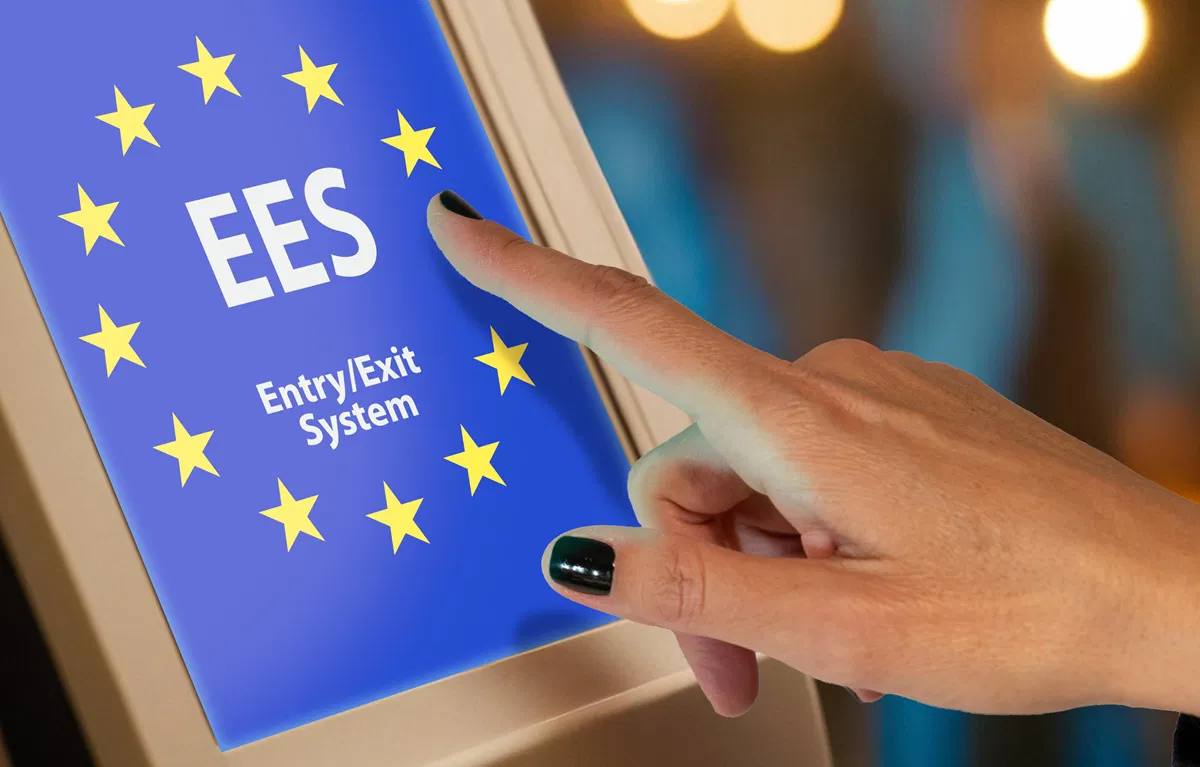By Farah Mokrani
Copyright euroweeklynews

The EU’s long-awaited Entry/Exit System (EES) is finally set to launch on October 12, and for British travellers heading into Europe by Eurostar, the rules are about to change. But even before the system has gone live, it’s already causing a stir.
Reports in the UK press suggested that passengers could soon be turned away at the border if they can’t show proof of medical insurance. The claim sparked panic among would-be holidaymakers and business travellers. So, what’s really going on, and should you be worried about getting caught out at St Pancras?
What actually changes with the new EES?
The EES has been years in the making and promises to modernise border checks for non-EU nationals – which now includes Brits post-Brexit.
Here’s how it will work: when you arrive at London St Pancras International to board the Eurostar to Paris, Brussels, or Amsterdam, you’ll need to go through new electronic kiosks. These will:
Scan your passport,
Take biometric data like fingerprints and a facial scan,
Record when and where you’re entering the Schengen zone.
On top of that, you’ll be asked a handful of simple questions before you can proceed. They include whether you have somewhere booked to stay, whether you’ve got a return ticket, if you have enough money to cover your trip, and whether you have insurance.
If you answer ‘no’ to any of them, the system will flag you for a manual check by French border police. And yes, they can refuse you entry if you don’t meet the requirements.
According to Euronews, only business and premium class passengers will face these checks from 12 October, with a wider rollout covering everyone due in January 2026.
Medical insurance or travel insurance – which is it?
This is where things got messy. Early reports claimed that Eurostar passengers would need medical insurance to get into France, sparking fears of a new layer of red tape.
Eurostar has since stepped in to clear up the confusion, saying the wording came from a translation error. What passengers actually need is general travel insurance, not a specific medical-only policy.
A spokesperson admitted the English version of the questions shown at the kiosks was ‘provisional’ and still awaiting final confirmation from France’s Ministry of the Interior. In short, don’t expect the wording to be perfect from day one.
But then the UK government added to the uncertainty. Officials confirmed that travellers ‘may be asked’ if they have medical insurance at kiosks, but stressed that it is not a legal requirement to enter the EU. Instead, they “strongly recommend” that all travellers buy comprehensive travel insurance that includes medical cover, repatriation, and cancellation protection before heading abroad.
France’s rules muddy the waters further
Here’s the twist: while the EU itself doesn’t require proof of medical insurance, France technically does for third-country nationals.
The official French guidance says visitors should have an insurance certificate covering medical and hospital expenses, repatriation, and even costs in the event of death abroad.
In practice, though, this has rarely been enforced at the border. Most travellers heading to France have never been asked to show proof of medical insurance – but the launch of the EES could change that. With electronic systems flagging up certain requirements, French border police may now be more inclined to check.
The same goes for the rule about return tickets. While Schengen rules only ask for proof of departure from the zone (which could be a flight to another country, for instance), France insists on a booked return ticket.
What this means if you’re travelling by Eurostar
So, let’s cut through the noise. If you’re planning to hop on the Eurostar this autumn or beyond, here’s what you really need to know:
Expect to face extra questions at the kiosks at St Pancras about your accommodation, funds, return ticket, and insurance.
Travel insurance is the requirement, not strictly medical insurance, but it’s best to get a policy that includes both.
You’re unlikely to be asked to show proof, but if you are, having it could save you from a ruined trip.
The full system won’t affect standard class passengers until January 2026.
The headlines about compulsory medical insurance may have been exaggerated, but the safest move is still to travel with proper insurance in your back pocket. Not only does it keep you covered for unexpected emergencies abroad, but it also gives you peace of mind at the border if an officer decides to double-check your answers.
A new travel reality for Brits
The arrival of the EES is just another reminder that travel between the UK and EU has changed dramatically since Brexit. The days of waving your passport and strolling onto the Eurostar are long gone.
Instead, Brits should get used to longer waits, biometric scans, and being quizzed about their plans before setting foot in Europe. The medical insurance mix-up might have been the result of clumsy translation, but it’s a warning sign of the kind of teething problems travellers can expect as the system rolls out.
So, if you’re heading to Paris for a weekend break, Brussels for business, or Amsterdam for a city escape, don’t let the red tape catch you off guard. Pack your patience, keep your documents in order – and yes, buy that insurance.
Because while you might not need to show it, the day you do could be the day it saves you a fortune.
Stay tuned with Euro Weekly News for more news about Travel



